Unlock Your Creativity: How to Generate Music with AI Effortlessly
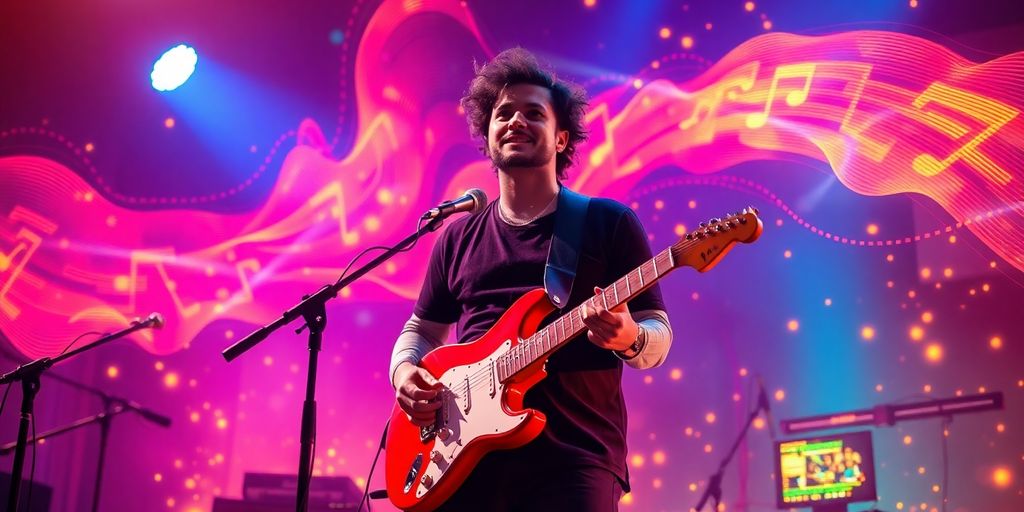
Creating music used to be something only musicians with years of training could do. But now, with AI, anyone can make music without much hassle. It’s like having a virtual band member who knows a ton about different styles and can whip up tunes at the click of a button. Whether you’re into jazz, rock, or something electronic, AI’s got you covered. Let’s dive into how you can generate music with AI and what you can get out of it.
Key Takeaways
- AI music tools make creating music accessible to everyone, no matter their skill level.
- You can customize tunes to fit your style, whether it’s jazz, rock, or electronic.
- AI saves time in music production, letting you focus on creativity.
- Collaborating with AI can lead to unique and innovative music tracks.
- Monetizing AI-generated music is possible through online platforms and social media.
Understanding AI Music Generation

How AI Analyzes Music Patterns
AI music generation starts with analyzing tons of existing tracks. Imagine a huge library of songs from every genre you can think of. AI tools sift through these, picking up on patterns and nuances that make each piece unique. They learn the rhythms, melodies, and even the emotions behind the music. It’s like teaching a robot to recognize different dance moves by watching hours of dance videos.
The Role of Machine Learning in Music Creation
Machine learning plays a starring role in how AI creates music. These systems train on datasets, absorbing everything about notes, chords, and tempos. Then, they start composing by predicting what comes next in a sequence of notes. It’s a bit like when you’re writing and your phone suggests the next word. This predictive power is what allows AI to craft new and original compositions.
Customizing Music with AI
Customization is where AI truly shines. You can tweak your AI-generated music to fit your needs, whether it’s adjusting the tempo or changing the mood. Want a jazzy twist on a pop song? AI can do that. Need a classical touch for a rock track? No problem. The beauty of AI is in its ability to adapt and personalize music, making it a fantastic tool for both amateur and professional musicians.
AI music generation isn’t just about creating new tunes; it’s about opening up endless possibilities for personalization and innovation in music. Whether you’re a seasoned composer or just starting out, AI offers a playground of creative opportunities.
Getting Started with AI Music Tools
Choosing the Right AI Music Software
Picking the right AI music software is like finding the perfect instrument. You want something that matches your style and skill level. There are loads of options out there, each with its own vibe. Some are super user-friendly, while others offer more complex features for seasoned pros. Think about what you need—are you looking for something to make quick beats, or do you want to dive deep into composition? Tools like AIVA and Jukedeck are great for beginners, while platforms like LANDR offer more for those who want to get serious.
Setting Up Your AI Music Workspace
Your workspace is where the magic happens, so make it count. Start by ensuring your computer meets the software requirements—nothing’s worse than lag when you’re in the zone. Get a good pair of headphones and maybe a MIDI keyboard if you’re into that sort of thing. It’s also a good idea to organize your digital files; clutter can be a creativity killer. A tidy workspace can help keep your mind clear and focused.
Exploring Free AI Music Generators
Not ready to drop cash on software? No worries. There are plenty of free AI music generators that let you experiment without spending a dime. These tools are perfect for dipping your toes into the world of AI music. You can try out different genres and styles without any pressure. Some of these free tools even let you export your creations, so you can share your tunes with friends or collaborators. It’s a great way to get started and see what AI music is all about.
Getting started with AI music tools is like opening a door to a new world. With the right software and setup, you can transform your musical ideas into reality, all from the comfort of your own home.
Creating Music Across Genres with AI
Generating Classical and Jazz Compositions
AI tools have truly transformed how we approach classical and jazz music. These genres, known for their complexity and depth, are now more accessible thanks to AI’s ability to analyze and replicate intricate patterns. AI can create compositions that mimic the greats, from Beethoven to Coltrane, by learning from a vast library of existing works. Imagine crafting a jazz piece with soulful melodies and intricate rhythms without needing to master every instrument. AI music generators can help you do just that, offering a platform for both beginners and seasoned musicians to explore and innovate.
Crafting Modern Pop and Rock Tracks
The world of pop and rock is dynamic and ever-changing, and AI is keeping up with the trends. With AI, you can produce catchy hooks and powerful riffs that define these genres. Whether you’re aiming for the upbeat vibe of pop or the raw energy of rock, AI tools provide the flexibility to experiment with different sounds and styles. Here’s a simple process to get started:
- Input your desired mood and tempo.
- Choose a style or let the AI suggest one.
- Generate and refine your track until it matches your vision.
This method allows you to craft tracks that are not only unique but also resonate with the current musical landscape.
Exploring Electronic and Experimental Sounds
Electronic and experimental music thrive on innovation, and AI is a perfect match for this creative playground. By using AI, you can produce cutting-edge sounds that push the boundaries of traditional music. Whether it’s creating a new ambient soundscape or an experimental beat, AI tools give you the freedom to explore and create without limits.
AI’s role in music is not just about replication but also about innovation. It opens up new possibilities for artists to explore sounds and styles that were previously unimaginable.
With AI, the future of music creation is not just about following trends but setting them. By embracing AI, you can be at the forefront of musical innovation, crafting sounds that are truly your own.
Enhancing Your Music Production Process
Collaborating with AI for Unique Sounds
AI tools are changing how we make music, especially when it comes to mastering music production. These tools can help you create unique sounds by analyzing and recombining elements from various genres. Imagine you’re working on a new track. You can feed your AI samples of jazz, rock, and electronic music. The AI then blends these elements, giving you a fresh sound that might not have been possible otherwise. This collaboration can spark creativity and lead to unexpected results. Plus, AI tools can easily share your compositions with bandmates or producers, making remote collaboration a breeze.
Time-Saving Benefits of AI in Music
One of the biggest perks of using AI in music production is the time it saves. Traditional music-making can be a long and tedious process, but AI tools can quickly generate beats, melodies, and even full tracks. This means you spend less time on the basics and more time refining your sound. Think of it as having an assistant who handles the repetitive tasks while you focus on the creative aspects. Whether you’re a solo artist or part of a band, AI can help you meet tight deadlines without compromising on quality.
Improving Music Quality with AI Tools
AI doesn’t just save time; it also helps improve the quality of your music. By analyzing vast amounts of data, AI can suggest changes to your tracks that might enhance their appeal. For instance, AI can adjust the balance between instruments, tweak the tempo, or even suggest new chord progressions. It’s like having a virtual sound engineer at your fingertips. AI mastering tools can also ensure your final product sounds polished and professional, ready for distribution on any platform. This means your music not only gets made faster but sounds better too.
Monetizing Your AI-Generated Music

Selling Your Tracks on Music Platforms
So, you’ve got your AI-generated tracks ready to share with the world. But how do you turn them into cash? Here’s a simple guide to get you started:
- Finalize Your Tracks: Make sure they are polished and in high-quality audio formats. You want them sounding their best.
- Choose a Platform: Consider platforms like Beatport, Bandcamp, or even Spotify. Each has its own audience and benefits.
- Register and Upload: Create an artist account and upload your tracks. Make sure to tag them with the right genres and keywords to reach the right listeners.
- Set Your Price: Decide on a price for your tracks or albums. Some platforms let you offer them for free with an option for listeners to pay what they want.
Promoting AI Music on Social Media
Getting your music out there is just as important as creating it. Social media is your best friend here:
- Create Engaging Content: Share snippets of your tracks, behind-the-scenes creation stories, or live sessions.
- Collaborate with Influencers: Partner with music influencers or creators who can showcase your music to a broader audience.
- Regular Updates: Keep your followers in the loop with regular updates about new releases, gigs, or any exciting news.
Building a Brand with AI Music
Building a brand around your music is key to standing out. Here’s how you can do it:
- Develop a Unique Style: Let your AI tools help craft a signature sound that sets you apart.
- Consistent Visuals: Use album art, logos, and social media graphics that reflect your music style.
- Engage with Your Audience: Respond to comments, ask for feedback, and create a community around your music.
Remember: Monetizing your AI-generated music isn’t just about making money—it’s about sharing your creativity and connecting with listeners who appreciate your sound.
Future of AI in the Music Industry
Democratizing Music Creation
AI is making it easier for anyone to create music, even if they don’t have a musical background. With AI tools, you can compose songs, experiment with different genres, and even collaborate with other artists without needing to know how to play an instrument. This shift is empowering more people to express themselves musically, breaking down barriers that once made music creation exclusive to those with formal training.
Innovations in AI Music Technology
The advancements in AI music technology are nothing short of fascinating. AI is now capable of generating complex compositions, analyzing vast amounts of musical data, and even predicting musical trends. These innovations are not just about creating music; they are also about enhancing the listening experience by offering personalized playlists and recommendations. AI-powered songwriting tools are expected to become more sophisticated by 2025, providing musicians with new ways to craft their art.
Challenges and Opportunities Ahead
While AI offers exciting opportunities, it also presents challenges. One major concern is the potential loss of jobs for musicians and producers. However, AI can also create new roles and opportunities in the music industry, such as AI specialists and music data analysts. It’s crucial for the industry to adapt and find a balance between technology and human creativity. As AI continues to evolve, the music industry must navigate these challenges to fully embrace the potential of AI-driven music creation and promotion strategies.
The fusion of AI and music is not just a trend; it’s a transformative force that is reshaping how we create, share, and experience music. As we look towards the future, embracing AI could lead to a more inclusive and innovative music industry.
Conclusion
So there you have it, folks. Making music with AI is not just a futuristic dream—it’s happening right now. Whether you’re a seasoned pro or just starting out, these tools make it super easy to get creative without the usual hassle. You don’t need fancy equipment or years of training anymore. Just a good idea and a bit of time. With AI, you can whip up tunes that are uniquely yours, and who knows? Maybe your next track will be the hit everyone’s talking about. So go ahead, give it a shot, and see where your musical journey takes you. The possibilities are endless, and the best part? You’re in control.
Frequently Asked Questions
What is AI music generation?
AI music generation is the process of using artificial intelligence to create music. It involves teaching computers to understand musical patterns and then using that knowledge to produce new melodies, rhythms, and harmonies.
How does AI learn to create music?
AI learns to create music by analyzing lots of existing songs. It looks for patterns in things like melody, rhythm, and harmony. Once it understands these patterns, it can start making its own music.
Can AI make music in different styles?
Yes, AI can create music in many styles, like classical, jazz, pop, rock, and more. It just needs to be trained with examples from the style you want it to work in.
Do I need to be a musician to use AI music tools?
No, you don’t need to be a musician. AI music tools are designed to be easy for everyone to use, whether you’re a beginner or an expert.
Are there free AI music tools available?
Yes, there are free AI music tools available online that you can try. They let you experiment with creating music without having to pay.
How can I make money with AI-generated music?
You can make money with AI-generated music by selling your tracks on music platforms, using them in videos, or even performing them live. Promoting your music on social media can also help you reach more listeners.

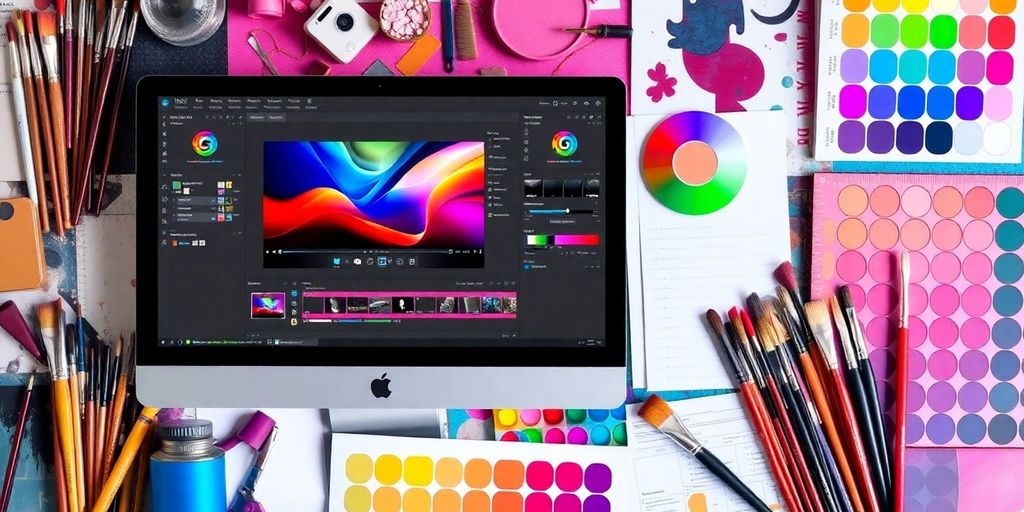
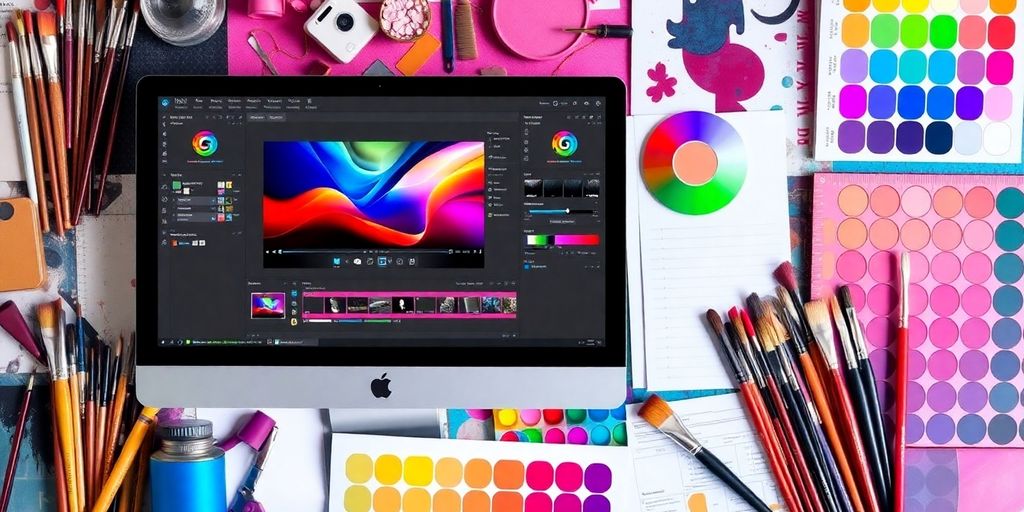
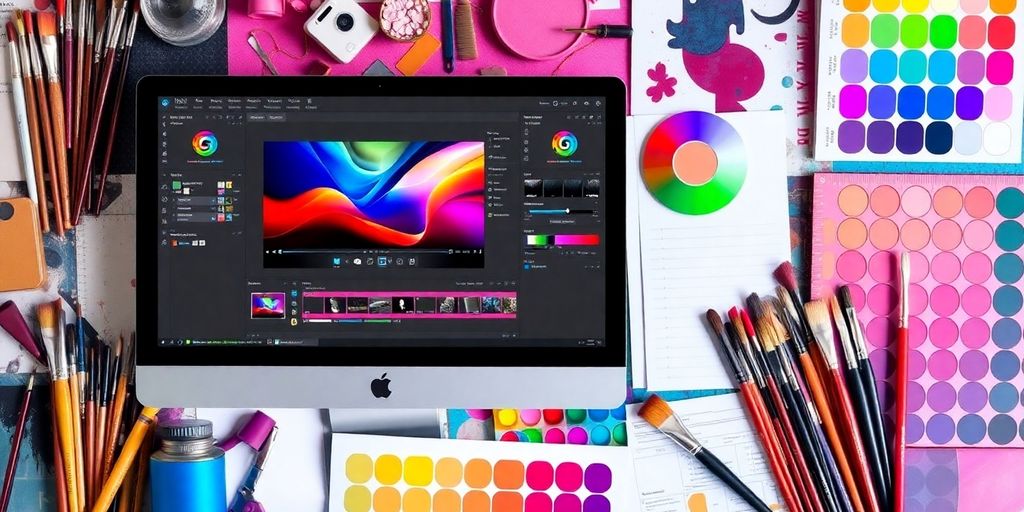
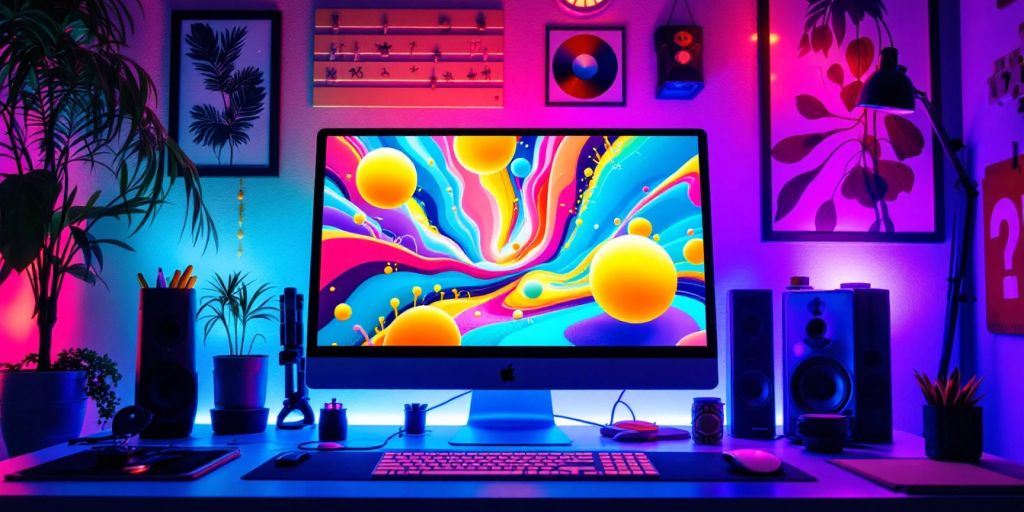
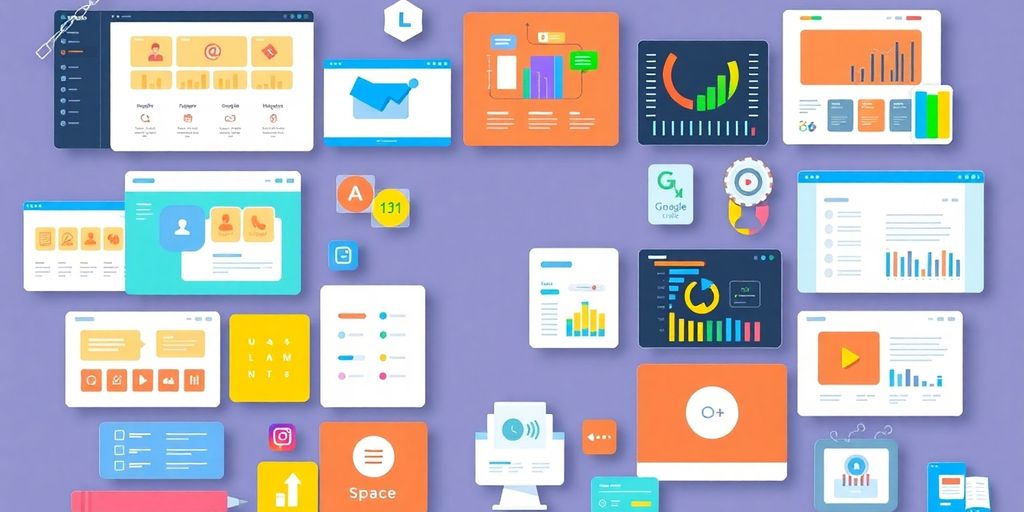
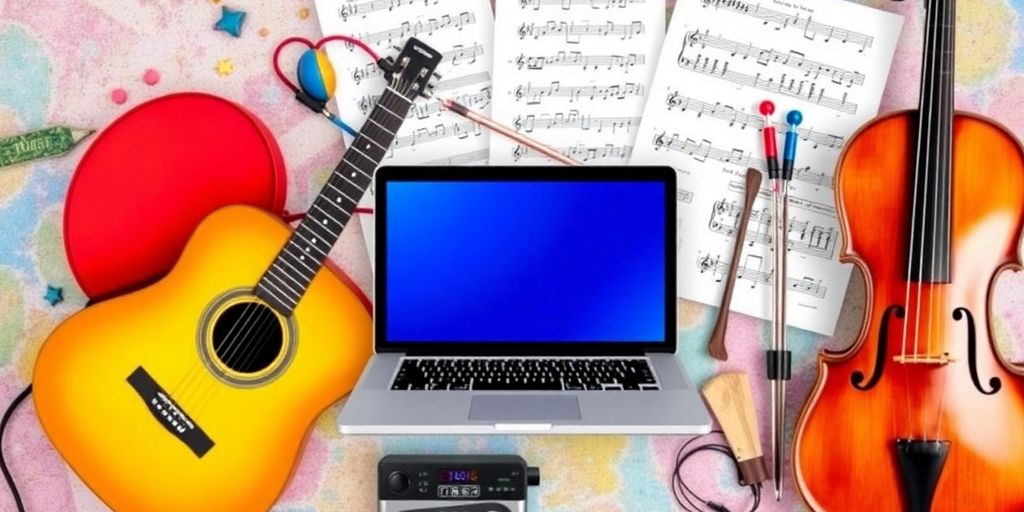
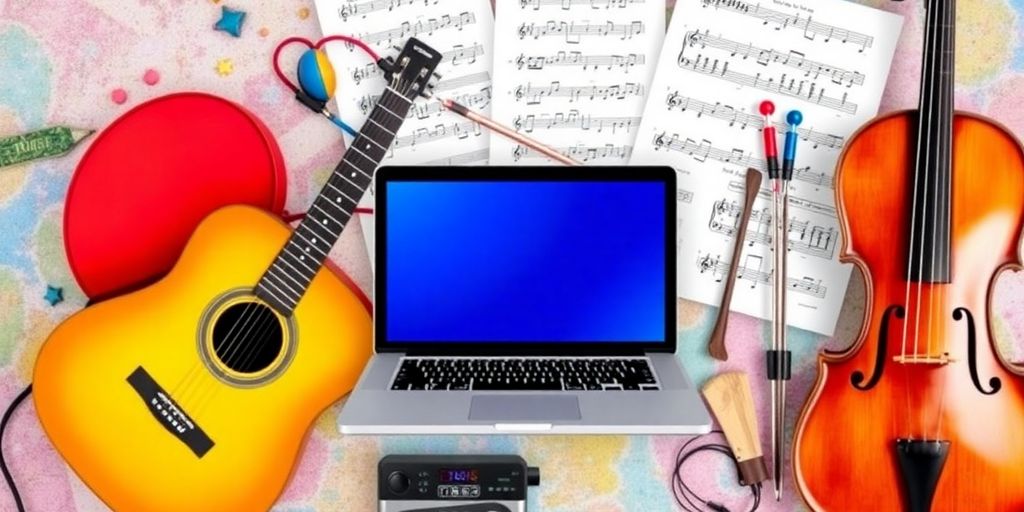
Responses